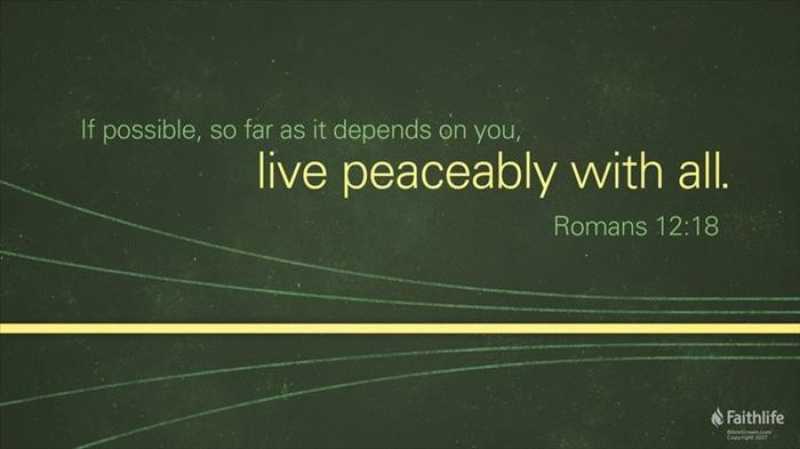trepanning bad blood

And Jacob said to Pharaoh, “The days of the years of my pilgrimage are 130 years; few and evil have been the days of the years of my life..” Genesis 47:8-9
EBS is not my #1 choice but it's my mom's. And we have one television at the house you know.? long story short, TV is always on during the weekend especially in the afternoon (yeah r.i.p. ኢቲቪ እሁድ መዝናኛ haha). In the afternoon show on a Saturday, there was this new segment dedicated to the reuniting of families and I happened to watch one of the guests. It was heartbreaking to watch this lady looking for her daughter who she hadn't heard from for almost two decades after returning from overseas.
The cries and tears conjured up the memories of a famous Genesis story—that of Jacob’s. First, he escaped from Esau and stayed at his uncle’s place in Mesopotamia for 20 years. I doubt he saw his parents in the intervening years let alone his twin brother. But the story goes that when Jacob sent for Esau, the latter went out with a host of people to meet him.
Jacob gets paranoid and thinks of all the things he did to end up in Laban’s house who makes serpents look like doves with his cunning. He suffers for two decades. and in the end decides to just go to flee without telling his boss. (The two daughters and their maidservants—collateral damage).
Here he sends messengers to Esau and is terrified when he learns that the latter is already on his way to meet him (perhaps he gathered some intelligence via a dream of some sort). Jacob fears for his life. his brother was seeking revenge and now he is surely going to get his way. Laban had pursued him and he nearly just escaped. Now this was the inescapable. but what does Esau do? he hugs him and they cry. that's what twenty years without seeing your twin will do to you. time does indeed heal all wounds. All the hurt and offense is removed. (ደግሞ ለሁለት ደቂቃ ብኩርና ያለም ይመስላል😊)
Having reconciled with his brother, Jacob goes his way. Many, many years after that his last son is born, whose mother - Jacob's first love, Rachel - dies in childbirth. He mourns her death, taking the second traumatic blow of his life.
But that was far from the end. Jacob - now called Israel - has twelve sons and a daughter now. his only daughter is raped. to make matters worse, his two sons avenge her by not only murdering the perpetrator, i.e. the so-called prince of Shechem, who still insisted that he wanted her hand in marriage and proposed for the Israel family to mingle with his people for Dinah's sake; they also go after 'all' the men of the city, killing them by 'the edge of the sword!'
Jacob is very fearful at this point, and for good reason. Given the savagery of a time in history that goes back millennia from today (where fighting still continues), the possibility of being the recipient of an entire country’s retribution was very much in the picture.
Not only that: tinged with the fear and dread is despair and grief over his daughter's fate; you can only appreciate that these series of events were lowlights in the life of this man that left an indelible mark throughout his existence when you examine some of his last words.
Perhaps the saddest event was still forthcoming. Joseph is Jacob's favorite son and both he and his ten half-brothers know it well. his dad didn't make a coat of many colors to any one of Joseph's other siblings, just him. (how he wasn't bullied in school for all the ‘queer’ vibes is still beyond me 😂)
But to make matters worse, this young man starts seeing dreams that bespeak not only the favor he had in his father's sight but also his dominion over all of his family. The dream of the sheaves. and then the sun, moon, and eleven stars worshipping at Joseph's feet rattled everyone including his dad, who proceeded to reprimand him. Nonetheless Jacob kept the matter in his heart. Like the Virgin Mary did many a time with Jesus when He did something out of the ordinary.
The day came when the brothers had it. – they 'conspired' to kill him but Reuben, the eldest, thought the judgment too harsh and tried to rescue him. His plan, which was still an egregious thing to do to a brother - was to throw Jacob in a pit and return him later. However, that does not work and they are forced to have to strip Joseph and dip his clothes in goat's blood to fake a fatal incident involving a predator.
Jacob is crushed when he hears of Joseph's death. he introduces to himself with not only a strong potent injection of grief but also a sustained-release dose of mourning and bereavement. Everyone tried their best but he couldn't 'come back'. It baffles me how none of those brats dared put it upon themselves to tell the truth seeing their father in that much pain.
All of this is very sobering; it makes you examine your relationships with loved ones. Do you have grievances; undealt problems; bad vibes with anyone? Would you go to their funeral? Is forgiveness out of the picture? What would you do if you couldn’t see that person for the next decade? Would you regret it if they died before you made amends? Would it haunt you afterward? Would you consider reconciling in light of that?
Maybe yours is not a very serious case—just one that needs fixing some parts here and there. Not shouting at each other. Not eyeing them with suspicion or envy. Not holding grudges against them for every little misstep. (I remember someone saying, “If everything someone does annoys you, it’s not so much what they did but the person that you don’t like.” How true! The Bible says, “Love covers a multitude of sins.”)
Let me close with this quote from Professor Jordan Peterson’s Beyond Order: 12 More Rules (a great read, by the way)
To be grateful for your family is to remember to treat them better. They could cease to exist at any moment. To be grateful for your friends is to awaken yourself to the necessity of treating them properly, given the comparative unlikelihood of friendship itself. The temptation to become embittered is great and real. It requires a genuine moral effort not to take that path, assuming that you are not—or are no longer—naïve. The gratitude associated with that state of Being is predicted on ignorance and inexperience. That is not virtue. Thus, if you are attentive and awake, and you can see the structure of the world, bitterness and resentment beckon as a viable response. Then you might well ask yourself, “Well, why not walk down that dark path?” It seems to me that the answer to that, to state it again, is courage: the courage to decide “No, that is not for me, despite the reasons I may have for being tempted in that direction,” and to decide, instead, “Despite the burden of my awake mortality, I am going to work for the good of the world.”
If you’re going to remember anything said here, remember this: The people around you are as flawed as you are; and they won’t be around forever. Treat them well. Accept who they are. Make amends. Forgive and forget. Live in harmony. "Don’t make such a fuss about every shit that happens. In the words of MLK, I choose love; hate is too great a burden to bear. Be responsible and caring, and refuse to be resentful, cynical, or sociopathic.

